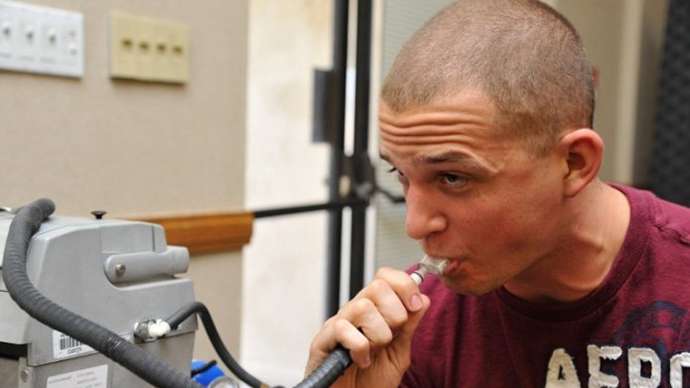New Study Reveals Surprising Benefit to Being Overweight
People struggling with their weight often face endless frustration and health problems, but they may be doing something right when it comes to fighting dementia.

If doctors had a way to easily spot the difference between cancer and indigestion, it could save thousands of lives.
Soon there may be a simple test that lets them find stomach cancer in its earliest stages, when it's easiest to treat. The symptoms — burping and heartburn — mirror too many minor health problems, and patients are often misdiagnosed until the cancer spreads. But new research could soon give doctors the tools they need to be right on the nose with their diagnosis.
Scientists from the Israel Institute of Technology and the University of Latvia believed there's a way to "sniff out" stomach cancer in those stages because it has a unique smell.
They focused on finding "breath prints" of cancer — the idea that people with cancer have chemical compounds in their breath, which don't show up in people who are cancer free. They used a technology called nanoarray analysis to see if it can spot those minute differences in chemicals people breathe out.
The study builds on earlier work by Israeli, Latvian and Chinese researchers who first identified "breath prints" and suggested proper technology — or even dogs — could be used to sniff out cancer.
Early tests on 484 people found the nanoarray technology was 92% effective in spotting people in the early stages of stomach cancer. The researchers published their findings in the journal Gut.
Larger tests, involving thousands of subjects, are planned. If those go well, nanoarray analysis could be used to screen for stomach cancer within just a few years.
"Diagnosing cancer in its early stages offers patients the best chance of successful treatment," Dr. Emma Smith of Cancer Research UK, told the BBC. "So research like this has potential to help save lives."
Be the first to comment